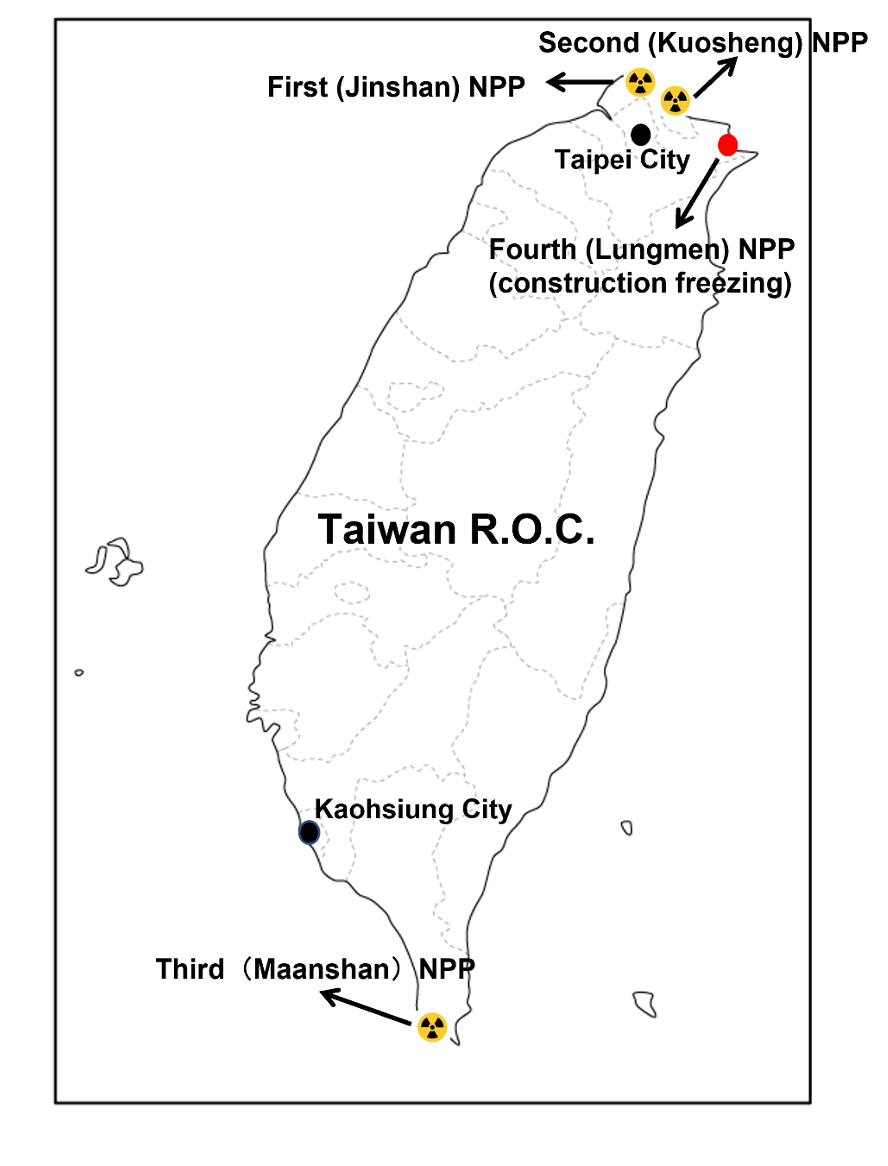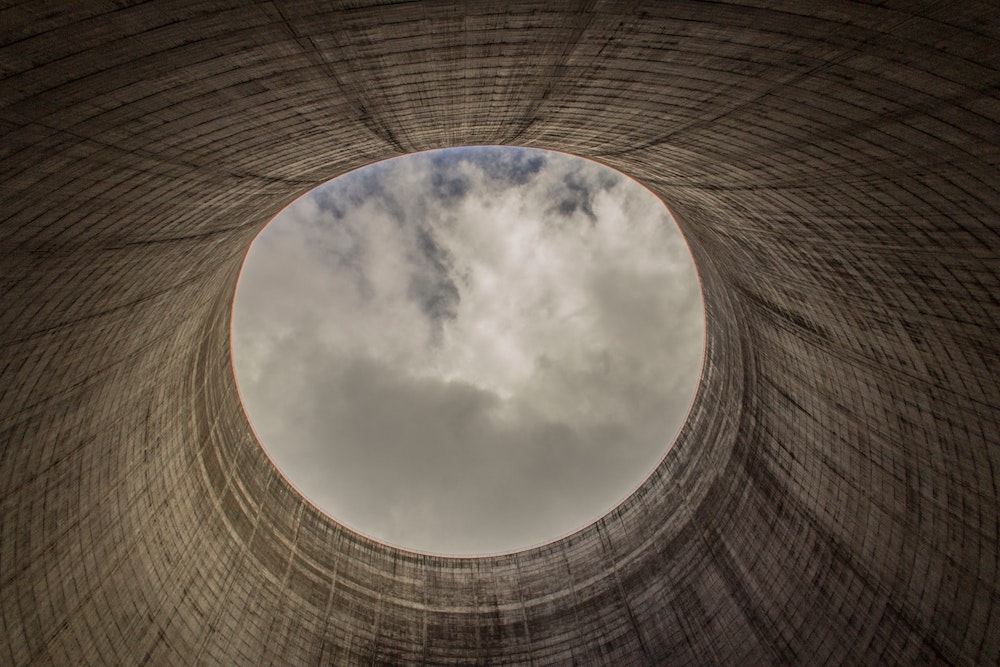A “nuclear-free homeland” is the slogan adopted by Taiwan’s government to promote the nuclear phase-out, a major pillar of its energy transition policy. In 2017, Taiwan amended Article 95 of the Electricity Act and enacted the law to shut down all nuclear power plants (NPPs) in the country by 2025, when the third (Maanshan) NPP (Fig. 1) in Hengchun Township, Pingtung County, located in the southernmost part of Taiwan, is due to cease operation. The government has taken an opposing position to extend operating permissions for existing NPPs, with the decommissioning process already underway in some reactors.

Figure 1. NPP Map of Taiwan / Source: Illustrated by the author
On the other hand, Taiwan’s energy issues including nuclear phase-out cannot be completely separated from political motives. It is no exaggeration to say that these issues are one of the highest priorities in politics. Since 2016, two referendums have been held to question the nuclear phase-out itself in 2018, and to determine whether or not to start the operation of the fourth NPP last year in 2021.
Primarily, the fourth (Lungmen) NPP (Picture. 1) has been the biggest bone of contention so far. The abolition of the fourth NPP is one of the pivotal political assertions of the current ruling Democratic Progressive Party. While the party has consistently been advocating for freezing the construction plan and commercial operation of the plant, the opposition Kuomintang has not abandoned its pro-nuclear stance based on the cost of power generation and the stability of power supply.
原発.png)
Picture 1. The fourth (Lungmen) NPP / Source: Taiwan Power Company
Nuclear phase-out problem being questioned in recent referendums
The nuclear phase-out policy was rejected after failing to rally support from the people in the referendum conducted in November 2018. Consequently, the proposed Article 95 of the Electricity Act stipulating “the nuclear-energy-based power-generating facilities shall wholly stop running by 2025” was immediately repealed, which has invalidated the legal basis for “nuclear phase-out by 2025” because further amendment to the same law is not permitted for the next two years.
The second referendum took place on restarting commercial operation of the fourth NPP last year in late December 2021. Referendum proposals included the construction project of a new terminal for natural gas, an energy source expected to partially substitute for coal-fired power generation, and environmental damage associated with it at the same time, bringing environmental and energy issues that affect everyday life back again to a major point of political dispute.
A referendum proposal is passed if the number of valid votes in favor of the proposal exceeds that against it and accounts for more than a quarter of the total number of eligible voters. However, most of the voters did not agree to restart the commercial operation of the fourth NPP in the 2021 referendum and the current “nuclear phase-out” policy was authorized to proceed for some time in the future. The construction of the proposed natural gas terminal was approved and will move ahead as planned.
The high political momentum for nuclear phase-out in Taiwan was especially driven by the Democratic Progressive Party that took over the government with its anti-nuclear power policy in 2016, but there are several other reasons behind it.
Firstly, the Fukushima Daiichi nuclear disaster that occurred in March 2011. Taiwan, which is often hit by earthquake disasters like Japan, received the news with deep shock, leading to mass antinuclear demonstrations across the island two years later in March 2013. The momentum against nuclear power grew stronger, with more than 220,000 citizens reportedly participating in the demonstrations.
Adding to this, novel fault zones were discovered in 2013 around the location of the fourth plant and nearby waters, followed by detection of design flaws and other concerns raised by a series of safety verification tests. The fourth NPP has not yet been cleared of safety concerns.
Nuclear waste disposal and storage are also recognized as serious problems. As in other countries, NPPs are no longer an inexpensive source of power generation in Taiwan, when nuclear waste disposal, storage, and safety measures are factored into power generation costs.
Overall, Taiwan is expected to adhere to the goal of energy transition policy by working on two main objectives, expansion of use of natural gas and renewable energies, and elimination of coal- and nuclear-based power generation. It will be worth watching how Taiwan will strike a balance between a robust domestic economy and the global trend toward decarbonization in the future.
—
Text: CHENG Fang-Ting (Institute of Developing Economies)


